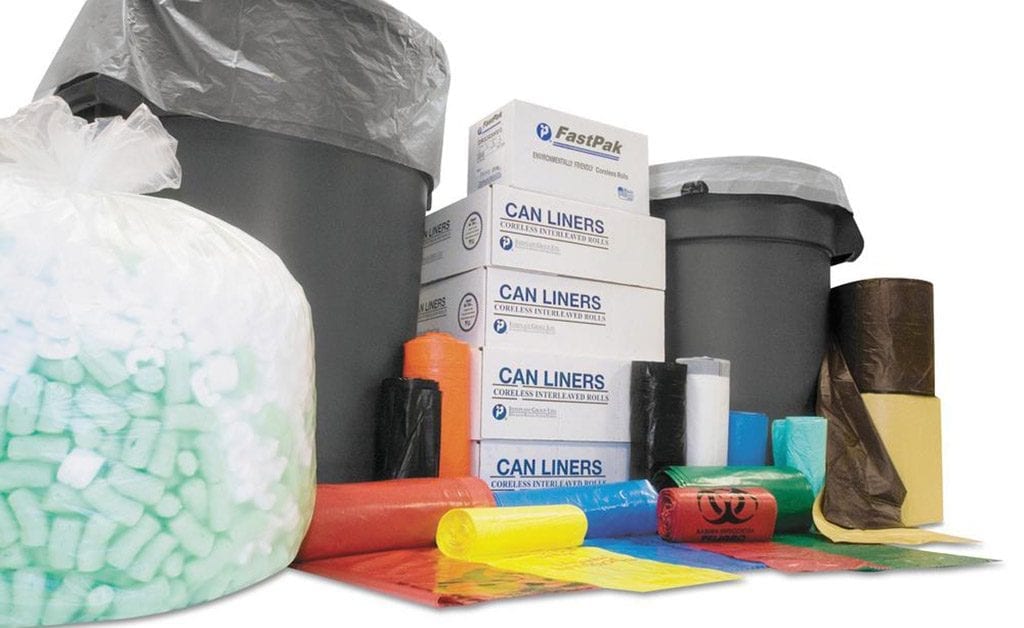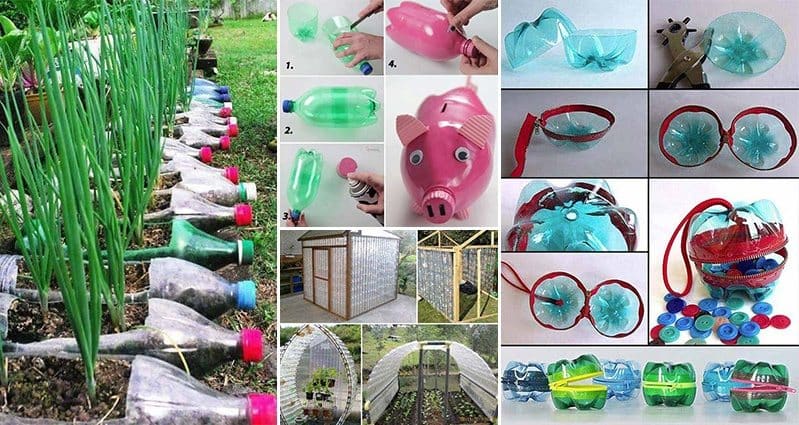8 Reusable Items That You Should Start Using Right Now
By Kati Sakurra Last updated on:
1. CLOTH DIAPERS
We could go on and on about the environmental and financial benefits of cloth diapering. Disposable diapers will be one of your highest annual expenses in the first year of your child’s life, and it wreaks havoc on landfills and our oceans.
Cloth diapering is a slightly higher upfront cost, and hundreds (potentially one or two thousand) dollars in savings over the course of your baby’s life. If you were blessed with twins, double those numbers.
Cloth diapering does take more time. If you purchase enough and plan accordingly, you can only perform washes every two to three days, and have back-ups ready just to plan for the unexpected.
There is far more tact to this, but the easy way out (disposables) is rarely the best option, no matter what you’re talking about.
2. COTTON AND CLOTH GROCERY BAGS
Cotton and plastic share one thing in common: they’re a polymer. The difference is, cotton is a naturally occurring polymer, and breaks down in nature in record time.
That makes cotton and canvas grocery bags fantastic for being eco-friendly, but they also give you more benefits than plastic bags.
You can carry more per bag (usually up to 44 lbs in a single bag), they’re larger than plastic bags, and you don’t have to make six trips to the car and cut off your finger circulation to carry them all back.
Environmentally, cloth and cotton grocery bags are better, but still require some fuel to be spent on production just like anything else.
It’s just important to know that when you buy reusable grocery bags, you should commit to using them as often as possible to actually cut down on your single-use plastic consumption.
For this, we recommend having one batch in the car, and another set of bags that you might bring indoors when hauling the groceries up.
3. MICROFIBER CLOTHS
These things are like magic, and can replace your paper towel and disposable cleaning rag use completely.
Microfiber rags are known to stain from time to time, but they still come out of the wash extremely soft. Microfiber takes a little longer than straight-up cotton to degrade in nature, but it is biodegradable.
You can get an average of about three years of use out of each rag, even if you’re using them on a daily basis. After a certain point, they should be disposed of for sanitary purposes.
Microfiber cloths can be swapped out for cotton cleaning rags, which have about half the life expectancy, but are cheaper and break down in nature a little bit faster.
Cotton cloths do tend to tear or wear through with age, but either way, saving an immense amount of paper towels would be the best possible thing you could do by switching to microfiber or cotton cloths.
4. SILICONE STORAGE BAGS
![]()
Use them for food, use them for anything you like, but just make sure that you’re staying away from single-use plastic bags in general.
Silicone and PEVA freezer storage bags are the optimal way to store food when tupperware just doesn’t cut it, and you have certain things that can’t go into glass jars for whatever reason.
Due to the natural water resistance of both of those materials, these bags are super easy to clean regardless of what was inside of them.
That’s a minimum amount of water waste, all while having something that’s completely food-safe to store food in. Silicone is used
5. MOTOR OIL
Motor oil is widely useful, but it’s also extremely toxic for the environment.
You can recycle it, but then it’s basically going to be stored in cans forever or filtered and reused, and you could be the one reaping the benefits of it instead.
Used engine oil recycling isn’t very common, so people have had to get creative.
Whether you filter the oil or not, you can use it for a bunch of DIY projects like:
- Finishing a floor
- Protecting the integrity of your tools
- Staining a fence
- Lubricating hinges
- Soften new leather work boots (and other uses in our guide here)
So long as you store your oil correctly, using it shouldn’t be a problem. You can reuse oil, preferably after it’s been filtered, for a very long time throughout multiple applications.
6. CAN LINERS
Nobody is saying that you ha.ve to have an unsanitary kitchen, but if you’re using your trash can liners effectively, you can reuse them multiple times before you run into issues.
Rinse the trash can liner with a little bit of water, and then pour it into the trash bin alongside the trash. This quick rinse should prevent most food waste from sticking to it, which will prevent bacterial growth.
There are reusable trash can liners that are meant to be washed repeatedly, and the liners can be used for years.
However, this isn’t something that every eco-friendly person is hyped about, and that’s understandable.
You can still use a disposable liner two or three times before discarding it, effectively reducing your trash bag waste by about 67%.
That may not seem like much in the grand scheme, but how often do you purchase trash bags? Often enough for it to matter.
Reusable trash can liners are an excellent thing though, and can further your environmentally conscious efforts. Once you remove all forms of waste, most of them are machine washable, so you don’t have to get your hands too dirty.
7. GLASS BOTTLES AND JARS
Glass has virtually infinite uses.
Glass is superior to plastic for storing food and beverages, because it has absolutely no leaching properties whatsoever.
There’s nothing that’s slowly going to degrade from glass and get into your drink, or contaminate food despite how long you store it in there.
Reusing glass bottles from alcoholic beverages or soda is a great way to reduce your carbon footprint, and earn some permanent drinking glasses.
They aren’t as durable or bump-resistant as drinking glasses that you buy at the store, but they still get the job done, and can last for decades with proper care.
The biggest thing to keep in mind is that you need to sanitize these glass bottles very carefully. It’s difficult to clean a narrow neck bottle when you don’t have the necessary tools, but there are other ways to clean and sanitize them effectively.
Using glass keeps it out of landfills and oceans, which is obviously a major up for the environment, but it’s also an enormous financial benefit if you stick with it.
Replacing water bottles can save you hundreds of dollars per year, and if you have a large family, the savings only grow as the kids get older and consume more.
8. PLASTIC BOTTLES
At the end of the line, you probably weren’t expecting us to tell you to reuse plastic bottles, but it’s actually one of the most eco-friendly things you can do with them.
There are a ton of ideas that you can put into practice. You can turn plastic water bottles into:
- Plastic greenhouses for growing plants
- Vertical gardens by hanging water bottles on fences
- Planter pots out of bottle bases
- First-aid kits for emergencies
- Bird feeders
- Make-do piggy banks
- Irrigation systems
And that’s just naming a few.
Reusable plastic bottles made the bottom of this list because, if you notice, we did not deem them safe for reuse with food or personal care products.
That’s because at the end of the day, there are still chemicals in each of the seven different plastic types that can leach into your food.
These ideas and others that you will find are the perfect way to keep plastic out of the landfills and oceans, and put them to good use inside of your home.
You can use plastic water bottles to do refills at work, just don’t do it more than a few times.
Water bottles are lightweight and convenient, but those chemicals can get into your water in ways you couldn’t imagine.
If your bottle of water was sitting in the cup holder in your car on a hot day, the high heat could leach chemicals.
If you freeze those bottles, you can still end up with chemicals in your water.
https://naturecode.org/reusable-items/#:~:text=Benefits%20of%20Reusable%20Items%201%20Cost%20Effects%20There,use%20than%20plastic%20in%20almost%20every%20situation.%20

